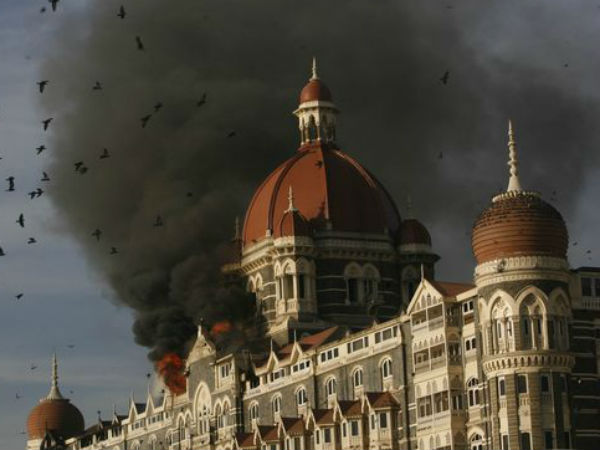
Interview: NTRO should be responsible for all technical tracking of terror activities
Bengaluru, Nov 27: When the 26/11 attack was being planned, the Intelligence Agencies clearly did not keep their ears open to the chatter that was taking place through Voice over Internet Protocol.
The VoIP calls were not tracked and India paid the price when ten terrorists breezed through Mumbai killing over 160.

Have we learnt out lessons from the failures of 26/11? V Balachandran who was part of the High Level Committee which probed into the performance by the police during 26/11 says that there is a lot to learn from the attacks.
In this interview with OneIndia, Balachandran says that, we should hold the National Technical Research Organisation solely responsible for all technical tracking and innovation instead of overburdening the state police departments by creating parallel technical agencies.
Why did Indian agencies miss the chatter on VoIP?
The central agency had not warned the police department that terrorists would communicate using VoIP. Central agencies, who should have kept their eyes and ears open, did not perhaps know that VOIP was extensively used since 2004 for commercial communications in advanced countries.
The ISI or their Lashkar-e-Tayiba moles abroad knew about it and used it successfully for two way terrorist-control communications, leaving the Mumbai police flummoxed. It took a long time for us to decipher what was happening as the terrorists had foreign- registered cell phone numbers.
Why do you think the monitoring failed:
One reason for this situation is because innovation and originality are never appreciated by hierarchically-driven bureaucracies.
That was the reason why the Indira Gandhi government made a special provision to make lateral recruitment of outside talents, especially the kind that was not ordinarily available within government, when our external intelligence agency was set up in 1968. However over a period of time the Central government's personnel policies have made this rule a dead letter.
Should the NTRO play a bigger role?
We should hold the National Technical Research Organisation solely responsible for all technical tracking and innovation instead of overburdening the state police departments by creating parallel technical agencies.
We should hold our national intelligence agencies answerable for all India terrorist related intelligence, leaving only local efforts of physical prevention, detection and investigation with the 29 state police forces.
We need to keep certain ground realities in mind on the 7th anniversary of 26/11. Paris 13/11 attacks have proved that even advanced countries could fail in taking normal preventive steps, like access control, to avoid terrorist strikes.
This negligence has cost them very dearly despite France's Interior Minister, Bernard Cazeneuve, claiming earlier this year that 400 terrorists were being tracked in the aftermath of the Charlie Hebdo attacks.
We also need to recognise that technical agencies churn out a huge volume of intercepted data. After 26/11 we have also been setting up Western models of technical collection. In 2007 Mike McConnell, the former US Director of National Intelligence, revealed that 16 US agencies collected 1 billion pieces of intelligence daily.
The volume will be much more now with the new emphasis by the US National Security Agency (NSA) on "High Volume Identifiers" in tracking thousands of people, places, and events connected to each other.
However, this too is far beyond the agencies' interpretation capability.
Does this mean conventional policing becomes redundant?
A wrong impression is growing among "cyber" specialists, police and intelligence officers in India and abroad that conventional policing and intelligence work has become redundant. Our political leadership also conveys this message as they want to appear to be technology oriented.
This
partly
arose
out
of
ISIS's
spectacular
success
in
attracting
"online"
recruits
through
better
visuals.
Intelligence
operators
all
over
the
world
feel
that
they
could
sit
in
comfortable
offices
and
dig
into
the
"Black
Web"
to
extract
intelligence
or
operate
their
"drones"
rather
than
chasing
human
spies
on
hostile
terrain.
OneIndia News


 Click it and Unblock the Notifications
Click it and Unblock the Notifications


































